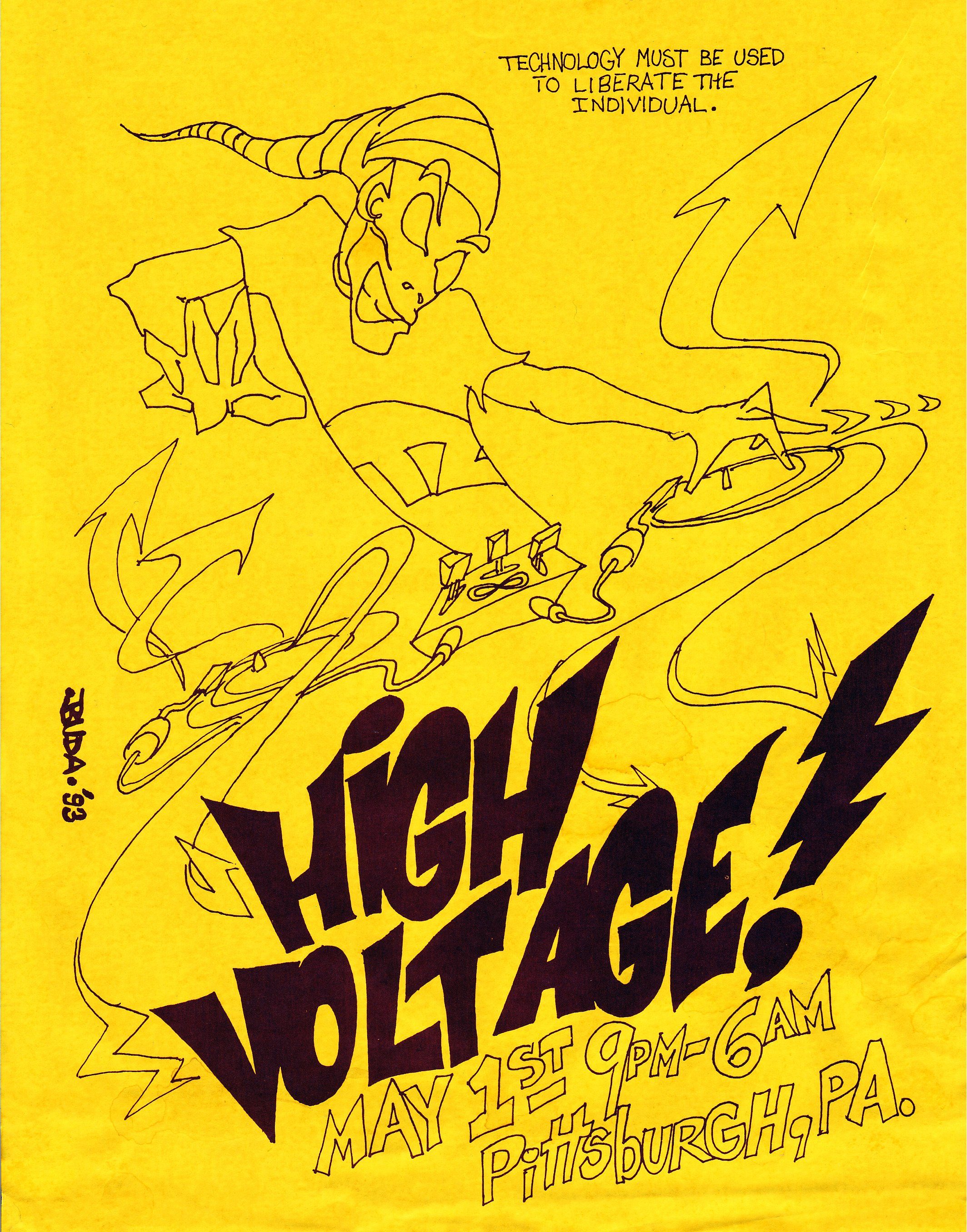 Features
Features
Blockchain: Rocket from the Crypto
Could Blockchain revolutionise the music industry?
“If I owned a big company I’d be shitting my pants at what’s coming,” says prog-house alumni Rui Da Silva. Conversations about blockchain do have a habit of escalating into sweeping statements about its potential for bringing about change.
Cryptocurrencies have blown up since hitting the mainstream: Bjork’s latest album, ‘Utopia’, and tickets to Kraftwerk’s recent gig at the Kremlin could both be paid for with crypto coins, Gramatik raked in millions by launching his own currency and artists from d’n’b grandees Pendulum to Skrillex protege Mija are busy making trades: “We’re a bunch of fucking nerds who work on computers all day,” Mija told Billboard. “I feel we’re slightly more in touch with modern technology.”
But this financial buzz is drowning out the significance of the tech that holds the crypto scene together. Strip it down and the blockchain isn’t much more than a place to record information and data; it’s a ledger made up of a chain of transactions that’s heavily encrypted and hosted on the computers of everyone who contributes. If anything is recorded on it, it stays there in plain sight and can’t be tampered with or hacked, baking trust into anything that goes down. Just as access to cheap recording gear allowed acid house to puncture a bloated 80s music industry, the systems that are being built use a collaborative software solution that’s easily accessible and cheaper. When doubled up with the blockchain’s rejection of centralised authority, this helps shift the ownership model from profit-driven corporations to something that’s nimbler, potentially fairer, more democratic and more transparent. Bitcoin was created in part to undermine the banking system after the 2008 crash, and given that big data dark arts may have swayed both the US election and the Brexit referendum, and social media can bloody the noses of big businesses, it’s best not to underestimate the weaponised nature of modern tech.

For the music industry, the timing is perfect. The digital era has been a time of possibility, opportunity and connectivity, but it’s left a teenager’s bedroom of bureaucratic carnage in its wake. Clued-up musicians are going public about how little they see of the profits their work generates, overwhelmed collection agencies and their time-worn methods are creating log-jams in the flow of royalties, while the lack of accurate metadata tagging on YouTube means cash meant for artists has further bloated the piles of cash idling in these kitties of unclaimed revenue, known in the industry as ‘black boxes’. Touts and their bots are also putting distance between artists and their fans by manipulating the ticketing market. Anyone who can fix these problems won’t be short of friends, and Da Silva is fully on board: “It’s going to make a difference because it’s tackling the major issues that exist in the industry.” Coldcut’s Matt Black, who has invested in a number of projects, smells blood: “Blockchain has the disruptive potential to wrench power back from the elite.”
Which is where the start-ups come in. Spotify has nudged revenue away from artists, but their perceived largesse – spending $500m on their New York offices after announcing $500m losses in 2016 – illustrates why music delivery services like Resonate, Ujo and Musicoin spy an opportunity to eliminate costly middle-men. There’s a quick win: the lightweight code framework means these services are cheaper to run, so most of the 30 per cent cut that digital outlets take can go back to the artists. This isn’t just a theory: after seeing Ujo release Imogen Heap’s ‘Tiny Human’ in 2015, the first major track released on the blockchain, Ninja Tunes’ Grammy-winning producer and crypto enthusiast Andre Allen Anjos, aka RAC, offered them his 2017 album ‘Ego’, setting up a test case for this new release model. For RAC, there’s a clear winner: “I won’t see accounting info for 2017 sales until April. That money is floating around: I don’t know how much or how many records I sold. Blockchain enables instant accounting; within seconds of a sale I’ve received the funds.”
DJs should note the precedent set by Joel Bevacqua, a veteran of the US rave scene, who released the ‘Rock The Blockchain’ mixtape on Musicoin under his Deadly Buda pseudonym. His drop is a big deal because it busts open the biggest play in this space: the processing of artist payments and royalty collection. A key blockchain innovation is the smart contract, a transaction that can trigger any number of automated payments upon completion. Using this system, Joel’s mix is configured to process and send payment to the artists whose tracks are used within minutes of any transaction. Minutes. “This experiment is going to be the catalyst for the solution,” Da Silva believes. “I gave him some songs for the mix and now every time someone listens to it the money comes straight to me. As a proof of concept, it worked.”

Smart contracts could soon become an online staple. Social-media metrics aggregator Viberate, set up by Slovenian techno DJ Umek and his management team, is building a booking service that’ll connect unrepresented DJs and artists with promoters: “It would be impossible to do this if we had to do the contracts manually,” says co-founder Vasja Veber. “Smart contracts let us define all the terms, everyone agrees it, then the promoter pays the fee in a crypto escrow payment. That’s released after the gig if everybody is happy, so both sides are protected.” For Vasja, blockchain’s transparency also weeds out the fakers: “If you get booked by Ministry of Sound, that’s a big deal – but you could also make that up to pitch yourself to a club. There’s no way to verify this – but if it’s booked using smart contracts on Viberate it’s going to be on the blockchain, so a promoter can check.”
Using these tools to fix the outmoded music collection process and crack the black box problem to give artists what’s rightfully theirs is the game-changer. Spotify, iTunes and Beatport have produced a steep increase in multi-format royalty data that has overwhelmed collections agencies. Techno legend John Acquaviva, who’s continually pushed music tech forward as an investor behind the likes of Beatport and Final Scratch, spells it out: “At Beatport, we had millions of dollars to give the PRS, but they were like, ‘We can’t understand your metadata’. I’ve waited a long time for this to be solved. I want that black box money for every artist.”
It seems obvious: collection agencies struggle to process and organise data and here’s something that manages and governs the accuracy of data. The trick will be to find the best way forward. Ujo are working on a global database of who owns what on each track, but even without getting your head around the vastness of the mission, there’s a compatibility issue: “The problem is every company has its own blockchain, so it’s not just VHS vs Beta, it’s blockchain A vs blockchain B vs blockchain C. It’s like a digital tower of Babel,” Acquaviva says.

Dot Blockchain’s Benji Rogers believes the solution is to replace the ageing MP3 with a new format: “Our .bc file is a digital shipping container that’ll track everything from creation to distribution in an ongoing way. It’ll contain the WAV, the MP3, the session files, the stems, anything that goes towards creating it lyrically, plus the contracts. Participants can tag themselves in and out, and the blockchain will track amendments to the metadata, so you can see who owns what and pay them.”
Also using the container idea is Imogen Heap’s Creative Passport, which hopes to create a standard for musicians’ digital identity by holding key data, like verified profile info, IDs, business partners and payment mechanisms, and be a hub that music-related services can use. If they get it sorted, artists will be able to control their intellectual property rights and all the data linked to their work.
"If now is the golden age of music for listeners, we believe that Creative Passports hold the key to make it a golden age for those who make the music. It'll be a portal for artists' income and a means to control their key data." Heap explains. "There has never been a better time to rethink our business. We're transitioning from an internet of knowledge to an internet of value, and if you create intellectual property, this is fantastic news."

Resonate, the co-operative streaming service that nurtures fans’ engagement with their favourite music by using a tariff system that graduates from streaming to owning, is expanding its project to develop this with Heap. Resonate founder Peter Harris feels it could overcome a major structural hurdle: “Blockchain has an identity issue. Your identity isn’t attached to Bitcoin or Ethereum – but an artist’s identity needs to be attached to retain control of your chance for remuneration.” London-based Jaak has also been trialling a universal rights solution with media giant Viacom that’ll capture, verify and share the all-important metadata that records who owns a track.
If this new thinking is to solve the data and black box problems, everyone needs to be on board – but for the majors, there could be a conflict of interest. Ujo CEO Jesse Grushack: “They won’t want people to know what percentage they’re taking. They won’t want people knowing that Beyoncé only owns one per cent of her biggest hit because she had thirty-eight songwriters on the track.” When it comes to this potential sub-plot, Matt Black isn’t fucking around: “Major labels beware: your rip-off black box accounting, where you conveniently take advantage of your artists’ inability to penetrate your opaque accounting, has had its day.” Rui Da Silva also has no time for this heel-dragging: “Every person who benefits from slowing down payments is going to disappear. You don’t need them. You can remove layers of management and replace it with code if you run contracts on the blockchain.”
There’s a long way to go and a seemingly endless series of hurdles, battles and objections to overcome, but if only a fraction of what’s on the table takes hold, the industry could benefit in a big way. “I see a tremendous opportunity to create a system where people aren’t embarrassed about wanting to earn a living from creating music,” says Da Silva. “If block-chain solutions are well implemented it’ll be incredible for musicians. I don’t see any other technology on the horizon that can do that.”
Neil Queen-Jones is a freelance journalist, follow him on Twitter


